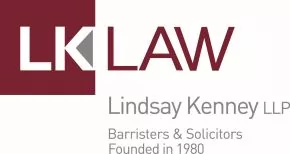- with Inhouse Counsel
- with readers working within the Banking & Credit, Healthcare and Technology industries
Executors are entrusted with the critical task of managing and distributing an estate after someone has passed away. While this duty comes with many responsibilities, mismanaging assets and other issues with estate administration can harm the estate and ultimately have a negative impact on beneficiaries. Where an executor has mismanaged an estate, it may be necessary to remove them from the role.
In Barbieri Estate v. White, 2024 BCSC 1357, a recent Supreme Court of British Columbia decision, the Court granted an application to remove an executor for this very reason. In Barbieri, a Deceased parent was survived by three adult children. All three children were beneficiaries of the Deceased's Will. The Will jointly appointed the Deceased's daughter and one of her sons as executors. Shortly after probate was granted, the son became the sole executor by consent. The estate quickly became contentious and escalated to litigation, with several court proceedings taking place over many years.
Eventually, the daughter brought an application requesting the executor be removed. The daughter alleged that, without her knowledge and approval, the executor had transferred an estate property to his newly-incorporated numbered company and later sold it. The daughter was not given notice before or after the transfer, and only discovered the transfer when she did a title search for the property. The daughter also claimed that a separate property was transferred to another beneficiary without providing her any prior notice. In both instances, the daughter claimed that the properties were undervalued. The daughter also had concerns about the executor's neutrality and self-dealing, and argued that the executor was favouring other beneficiaries over her.
While the executor partially admitted that one of the properties could have a higher valuation, he argued that the Will provided him with discretion to assign values to assets. He claimed that the transfers were interim distributions to beneficiaries and that he did not act in bad faith.
The Court did not accept the executor's argument that the transfers were interim distributions. Instead, the Court found that those claims were attempts to justify the executor's actions after the transfers were already completed. With respect to the property that the executor transferred to his company and later sold, the Court found that the executor's actions amounted to self-dealing. The Court also found that the executor favoured some beneficiaries over others and endangered estate assets, specifically opining:
"[64] From the totality of [the executor's] evidence on the critical issue there can be no doubt that he was engaged in self-dealing, acting in his dual capacity of executor and beneficiary, purchasing estate property. He did so without obtaining consent from the other beneficiaries, indeed in the case of [the daughter], without notifying her about the property transfer. [The executor] now concedes that he did not pay fair market value for the property, and in my view that would have been apparent to him at the time. Importantly, [the executor] acknowledges that his plan to purchase estate property began to take shape after [the daughter] was removed as co-trustee."
While the Court's decision did not turn on whether the executor had provided proper estate accounting, the Court did emphasize the need for comprehensive and transparent accounting from executors. The Court removed the executor from his role, and appointed a trust company in his place.
For executors, this case provides things to consider to ensure that executors are acting in accordance with their duties and the law. Properly valuing and notifying beneficiaries about the status of estate assets, particularly when assets are being transferred, distributed or sold, is crucial. Further, keeping thorough financial records for all estate assets is key. Executors have a duty to be transparent in the estate's financial dealings and account to beneficiaries. Ultimately, executors are required to be impartial and act in the best interest of the estate and its beneficiaries.
About Mackrell International – Canada - Lindsay Kenney LLP is a full service business law firm with offices in Vancouver and Langley, BC and a member of Mackrell International. Mackrell International – Canada is comprised of four independent law firms in Alberta, British Columbia, Ontario and Quebec. Each firm is regionally based and well-connected in our communities, an advantage shared with our clients. With close relations amongst our Canadian member firms, we are committed to working with clients who have legal needs in multiple jurisdictions within Canada.
This article is intended to be an overview and is for informational purposes only.


